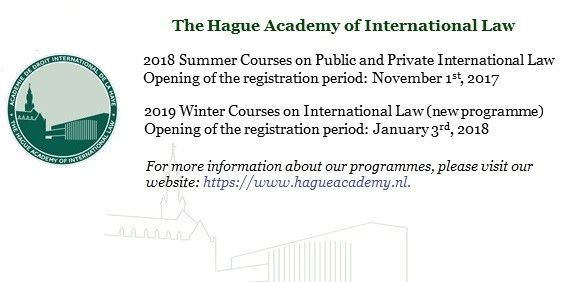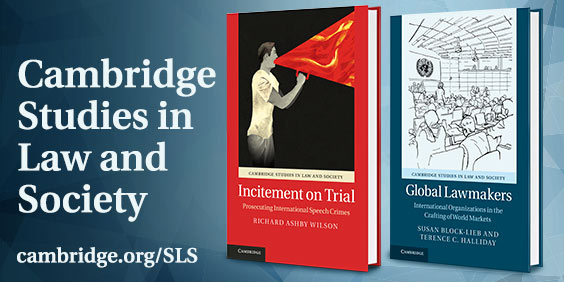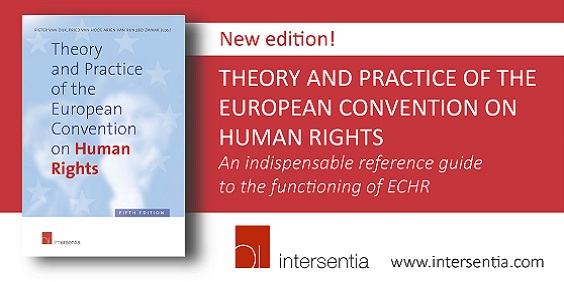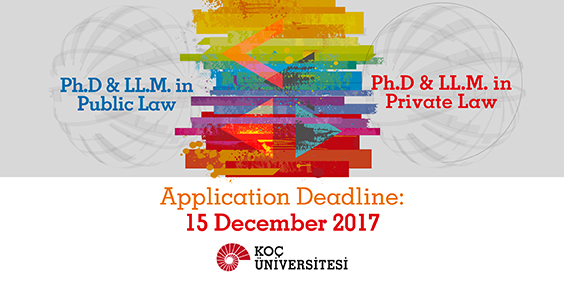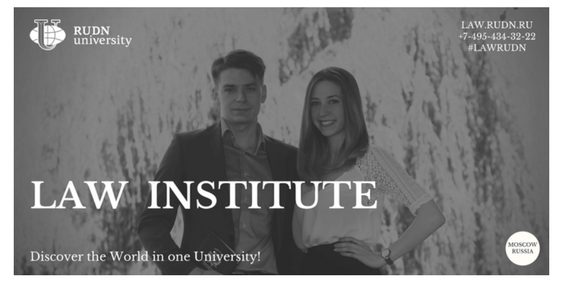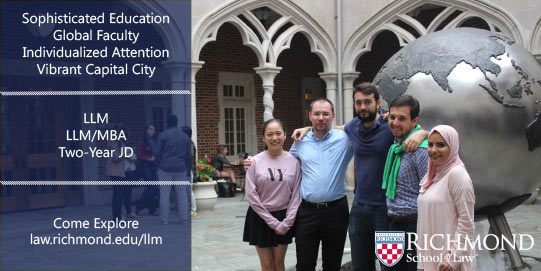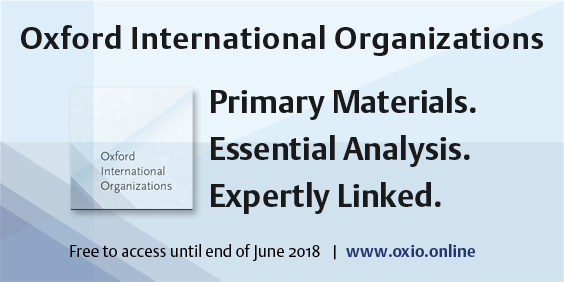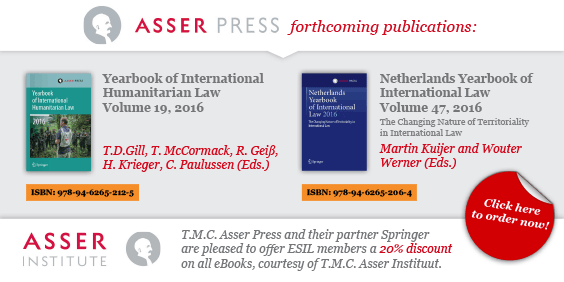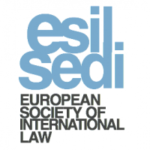ESIL Newsletter December 2017

 In this issue
In this issue

 1. President’s Message
1. President’s Message
Luis M. Hinojosa-Martínez
The concept of the rule of law is today an indispensable part of democracy. In Europe, many had taken it for granted that separation of powers, the primacy of law for dispute settlement, and the free election of people’s representatives guaranteed peace and justice and were core values that explained the superiority of democracy as a political system (and even announced the end of history). However, in spite of international initiatives to promote the rule of law, the rebirth of nationalism has weakened respect for these principles that are now sometimes presented as ‘anti-democratic’ because they limit the powers of democratically elected governments. Checks and balances are despised, constitutional courts ignored, xenophobic messages broadcast and minorities’ rights stamped on in the name of democracy and for the sake of the nation’s welfare and security. In this sense, the reading of the 2017 annual report by the Secretary General of the Council of Europe on the state of democracy, human rights and the rule of law in Europe, entitled ‘Populism – How strong are Europe’s checks and balances?’ is highly recommended.
However, as internationalists, we are naturally inclined to accept as much the sovereignty of states as the limitations imposed by the law in the exercise of their competences. ESIL has contributed to highlighting the limits of nationalist pressures that challenge the legitimacy of international obligations if they constrain the actions of democratically elected authorities. On Friday 6 October ESIL organized, together with the European Court of Human Rights, a one-day conference on ‘The European Convention of Human Rights and Migration‘ at the premises of the Court in Strasbourg. Almost one hundred specialists debated the pro-state or pro-migrant readings of the ECHR, the scope of the non-refoulement obligation or the concept of safe third countries in European human rights law. I should express my gratitude in particular to Judge Iulia Motoc and to Başak Çalı (ESIL Secretary General) for making this event possible.
Our Society is already working on an edited volume that will give an account of the many interesting ideas discussed during the conference. On 10 November, the second part of the ESIL Prague-Nottingham symposium on Non-UN Sanctions and International Law’ took place, a pleasing example of academic cooperation between universities from different parts of Europe that ESIL tries to enhance. I defer to the Guest Editorial kindly written by Mary Footer and Veronica Bílková on the symposium that debated, among other things, the trilemma of legality, legitimacy and effectiveness of EU sanctions, particularly when they impact on individuals’ human rights.
Several ESIL Interest Groups (IGs) have continued scholarly debates in various events that show our Society’s intellectual fitness: Bio Law IG (Malaga, 27 October) ‘International Biolaw and… Interactions with Environmental, Human Rights and Health Law’; International Business and Human Rights IG (Geneva, 26 November) ‘Emerging research trends in the field of business and Human Rights’; International Environmental Law IG (Groningen, 24 November) ‘Financing and the Right to Science in Technology Sharing for the SDGs’, and (Parma, 4 December) ‘Health, Environment and Food: European Law and Risk Regulation’.
Two ESIL Lectures have been given recently by Olivier de Frouville (Le Rôle de la Société Civile dans les Organisations Internationales) and Morten Kjaerum (The duty to engage – the recipe for trust in a world of angst). All ESIL lectures can be viewed on the ESIL website.
The organizing committee of the 2018 ESIL Research Forum (Jerusalem, 28 February/1 March) has done a wonderful job and the programme is already available on the conference website. We received a large number of abstracts and, as always, the selection proved to be a very difficult task. The title of the event (‘International Law in Times of Disorder and Contestation’) gives an accurate idea of the controversial and interesting questions that will be discussed. As was decided by the ESIL Board and backed in the ESIL General Assembly, no Israeli government officials will participate in the Research Forum and none of its activities will take place in occupied territory. Additionally some initiatives have been taken to foster the participation of Palestinian scholars in this event. You are all welcome to attend.
I will reserve for a future Newsletter my comments on the 2018 Annual Conference to be held at the University of Manchester on 13 – 15 September 2018 on ‘International Law and Universality’. The Call for Papers is available on the conference website. Let me just anticipate that those who love rock and roll will be delighted to attend.
Coming back to the title of this short contribution, let me stress that ESIL takes seriously respect for the rule of law in its governance and procedures. Besides its Articles of Association, the Bye-Laws governing Board elections and the functioning of Interest Groups, there are a whole set of Guidelines and procedures published on our website and framing the Board’s and the Interest Group’s decisions/activities. To mention just a few, the Procedure and criteria for choosing venues for future ESIL Annual Conferences, the Policy Guidance for ESIL Interest Groups, the ESIL Book Prize Guidelines, the ESIL Grants Regulation, etc. Our commitment towards transparency is also certain. Any member unable to attend the General Assembly may request the minutes as soon as they are ready and an independent Audit Committee elected by the General Assembly reviews the propriety of ESIL’s accounting.
The Board is always trying to improve its governance and procedures and all members are welcome to contact the Board at any time.
I am looking forward to meeting you at a future ESIL event,
Luis M. Hinojosa-Martínez
hinojosa@ugr.es
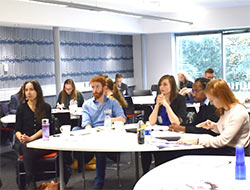
 2. Guest Editorial: Report on the ESIL Prague–Nottingham Symposium
2. Guest Editorial: Report on the ESIL Prague–Nottingham Symposium
Mary Footer and Veronika Bílková
On 10 November 2017, the second one-day event of the ESIL Prague–Nottingham symposium on “Non-UN Sanctions and International Law” took place in Nottingham. The symposium was co-organized by the Nottingham International Law and Security Centre (NILSC) of the University of Nottingham School of Law and the Centre for International Law of the Institute of International Relations (IIR) in Prague. The event was hosted in the Graduate Centre at Highfield House, on the University’s beautiful main campus.
The idea behind the two-part symposium was to consider various aspects of non-UN sanctions, i.e. unilateral sanctions adopted by individual States, groups of States, regional organizations or other actors. However, the legality and legitimacy of these sanctions, as well as their efficiency, remain uncertain and, to a large extent, unexplored. Whereas the Prague event in May 2017 concentrated on the legality and legitimacy of non-UN sanctions, the Nottingham symposium focused on their legitimacy, effectiveness and impact.
The Nottingham programme was composed of three panels. The first panel on theoretical perspectives covered the nexus of legality, legitimacy and effectiveness of sanctions; offered an interactional approach to understanding the effect of unilateral coercive sanctions on wrongful state behaviour; and provided a quantitative analysis, by way of a statistical study of annulment actions in EU sanctions before the ECJ. This was followed by a second panel that emphasised the impact and achievement of the goals of non-UN sanctions. The panelists explored unilateral sanctions as a mean of international normative contestation; provided a prism for assessing the human rights impact of such sanctions; and reviewed the impact of unilateral economic sanctions in promoting international peace and security. Finally, the third panel looked at the effectiveness and impact of regional and unilateral approaches to non-UN sanctions. Topics covered included: assessing the effectiveness of: politically restrictive sanctions by Latin American regional organisations; EU sanctions against the Russian Federation; African Union sanctions in furthering democracy; and the case of non-UN sanctions imposed on the Republic of Macedonia by Greece.
Unlike the Prague event, the Nottingham symposium mainly attracted PhD students writing their dissertations on an aspect of non-UN sanctions, as well as post-doctoral and early stage researchers and practitioners. As with the Prague event, the basis for selection of the papers was fair gender and geographic representation; the selection was successful in that all the presentations were interesting and gave rise to good discussion. The symposium was introduced by Nigel White, co-Director of NILSC and the panels were chaired by two members of the ESIL Board (Mary Footer and Veronika Bílková) and Julia Schmidt from the University of Exeter, a former post-doctoral researcher at the NILSC.
A publication on non-UN sanctions is envisaged and the organisers of the Prague and Nottingham events will make a final decision on its format and content before the end of the year.
This was the first symposium with a common theme hosted by two different institutions – one in a central European and the other in a northern European country – through a ‘twinning’ arrangement. The organisers consider that the twinning format, which seeks to foster outreach to some of the European peripheries, worked very well indeed. It brought fresh faces to the event and new members to the Society. ESIL plans to support similar events in the future.

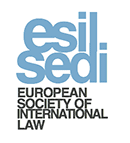 3. ESIL membership renewal
3. ESIL membership renewal
ESIL membership is for the calendar year, from January to December. If you are not a 5-year member or a lifetime member, or if you have not yet responded to the recent reminder emails, it is now time to pay your fees for the year ahead. You are strongly encouraged to do so before mid-December in order to maintain access to your online EJIL subscription and to be included in the 2018 ESIL Interest Group membership lists.
Paying the fee is quick and easy: log in to the online membership system, click on ‘Edit Account Information’ to check that your account details are up to date, and then proceed to payment.
- ESIL Newsletters are now available in either English and French – indicate your preference in your account.
- There are now 15 ESIL Interest Groups; make sure you have indicated all those you wish to join. You can join or leave any group at any time just by ticking the box next to the IG.
New this year: Members working or studying in low- or middle-income countries can opt to pay a reduced membership fee.
Members who wish to make a commitment to 5-year or to lifetime membership are very welcome to do so.
Last but not least, please encourage your colleagues to join the ESIL network: the Join ESIL button is clearly visible on the ESIL website home page.

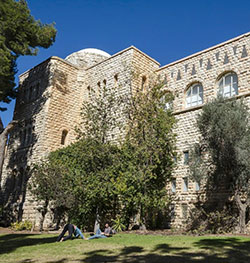 4. 2018 ESIL Research Forum
4. 2018 ESIL Research Forum
The next ESIL Research Forum will take place on 28 February – 1 March 2018 at the Hebrew University of Jerusalem. Venue: Maiersdorf Hall, Mount Scopus, Jerusalem.
The 2018 ESIL Research Forum will address the theme of international law in times of disorder and contestation. It explores challenges posed by political and ideological backlash, and the new terrain for international law-making, and responses to armed violence, economic crises, and threats to the legitimacy of international norms and institutions. In addition to conference panels and lectures, the programme includes a poster session, a session organized by the ESIL Interest Group on International Environmental Law, a masterclass for young scholars by Prof. Larry Helfer, and pre- and post- conference study tours and a practitioners’ panel (on 27 February. and 2 March).
You may now register for the 2018 Research Forum. The website of the Research Forum provides full information about the Forum: the programme; details of how to register; and information about the venue, and nearby hotels with special rates negotiated by the organising committee.

 5. 2018 ESIL Annual Conference
5. 2018 ESIL Annual Conference
We are now 9 months away from the 14th annual conference of the European Society of International Law, and for the first time since 2010 the Society will return to the United Kingdom. Having ESIL return to the UK at this time obviously bears significance. The conference will be held from 13 – 15 September 2018 in the heart of the vibrant city of Manchester. It will be organised under the auspices of the Manchester International Law Centre (MILC) which has established itself as one of the largest research centres in international law in the UK.
The theme of the conference is universality, and the fora and agorae will take a hard look at the question of universality. They will, for example, inquire whether the idea of universality of international law consolidates particularism, examine the prejudices and biases in the teaching of international law, question the apparent dominance of English in the thinking and practice of international law, and analyse the role of universality in the practice of international courts and tribunals as well as special regimes. The call for papers, as well as a more detailed description of the theme of the conference, can be found here.
Confirmed speakers include Philip Allott, Mashood Basherin, Gian Luca Burci, Hilary Charlesworth, Laurence Boisson de Chazournes, Christine Chinkin, John Danaher, Christopher Greenwood, Rosalyn Higgins, Arnulf Becker Lorca, Alejandro Lorite, Makane Mbengue, Gearoid O Cuinn, Liliana Obregón, Paul Reichler, Mohammad Shahabuddin, and many others.
We are also pleased to announce that the programme will include highlights that are unprecedented in the history of the Society. We have arranged that the conference dinner will be held at the mythic Old Trafford stadium of Manchester United. The programme will also include a rock concert by famous international lawyers whose identity will be concealed until September 2018.
Registration will be open in early 2018. Please keep an eye on the conference website.
We look forward to welcoming you to Manchester next September.
Jean d’Aspremont and Iain Scobbie
6. ESIL Reflections
ESIL Reflections offer up-to-date reflections on current issues in international law. The Reflections are now in their fourth year, covering a wide range of topics relating to current developments in international law and practice as well as theoretical reflections in a way that is relatively accessible to non-experts. The aim is to foster discussion between ESIL members and international law scholars and practitioners more generally – in Europe, but also beyond. ESIL Reflections are published monthly on this website and distributed freely to ESIL members.
The editors are Samantha Besson, Jean d’Aspremont (editor-in-chief), Jan Klabbers and Christian Tams. ESIL Members who have an interest in contributing are encouraged to do so. Please contact Jean d’Aspremont if you would like to contribute.
The most recent Reflection was The Silent Impact of the 1917 Revolutions on International Investment Law by Andrea Leiter.
7. News from Interest Groups
ESIL Interest Groups are a vital part of the Society’s success and activities. A list of the groups is available on the ESIL website. Reports of recent activities and upcoming events are available in the full text of the Newsletter.

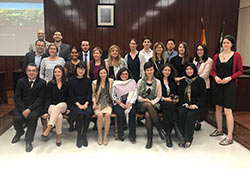 ESIL IG on International Bio Law:
ESIL IG on International Bio Law:
Workshop on 27 October 2017 at the University of Málaga: The event was an International Workshop of the International Bio Law Interest Group on the topic of “International Biolaw and…Interactions with Environmental, Human Rights and Health Law”. People coming from more than 24 institutions participated in the event: Italian universities (Cagliari, Salerno, Urbino, Catania, Turin, Pisa, Bari), UK universities (Glasgow, Cambridge, Hertfordshire, Edinburgh), Switzerland (Fribourg), France (Paris 1, Paris 10 and Paris 13), Germany (Max Planck Institute for Comparative Public Law and International Law, Heildeberg), Greece (University of Athens, Athens PIL, Secretariat for Water Hellenic Ministry of Environment and Energy), Indonesia (University of Jakarta), and Spain (Seville, Córdoba, Valencia, Málaga, San Pablo Ceu of Madrid).
There were three panels (looking at interactions of bio law with environmental law, human rights law and health law), and a lecture by Miguel García García Revillo entitled “The Preparatory Committee on Conservation and Sustainable Use of Marine Biological Diversity of Areas Beyond National Jurisdiction”.
The event was closed by Daniel García San José, founder of the IG on International Bio Law. We really thank all the participants for their active role during the workshop, in particular the moderators of the panels (Justo Corti Varela, first panel on Environmental Law; José Manuel Sánchez Patrón, the second panel on Human Rights Law, and Stefania Negri, the third panel on Health Law).

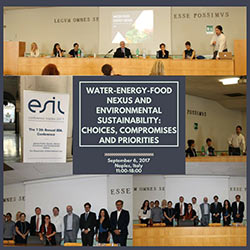 ESIL IG on International Environmental Law:
ESIL IG on International Environmental Law:
On 6 September, a pre-conference IG event was organized in Naples on the occasion of the 13th ESIL Annual Conference: “Water-Energy-Food Nexus and Environmental Sustainability: Choices, Compromises and Priorities”. Programme.
On 24 November, the Department of International Law, University of Groningen, organized a workshop on ”International Law for the Sustainable Development Goals” co-sponsored by the ESIL IG on International Environmental Law and gLAWcal – Global Law Initiatives for Sustainable Development (UK). Programme.
On 4 December, the Department of Law, Politics and International Studies and the Center for Studies in European and International Affairs (CSEIA) of the University of Parma hosted a conference on “Health, Environment, Food and Risk Regulation focus on: Good Governance, Intellectual Property Rights and Consumer Protection”. The conference was jointly organized by the ESIL IG on International Environmental Law, the ASIL IG on Intellectual Property Law and gLAWcal. Programme.
On 28 February 2018, a conference on “International Law on Sustainable Development, Climate Change and Environmental Protection in Times of Disorder and Contestation” will be organized by the ESIL IG on International Environmental Law as part of the 2018 ESIL Research Forum to be held at The Hebrew University of Jerusalem. Call for Papers.
